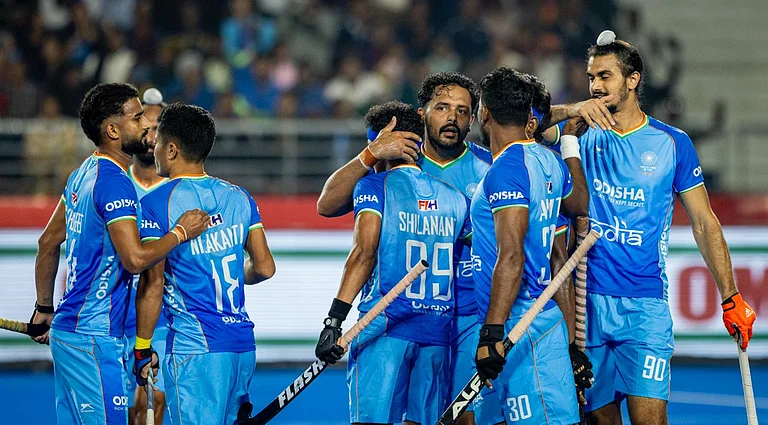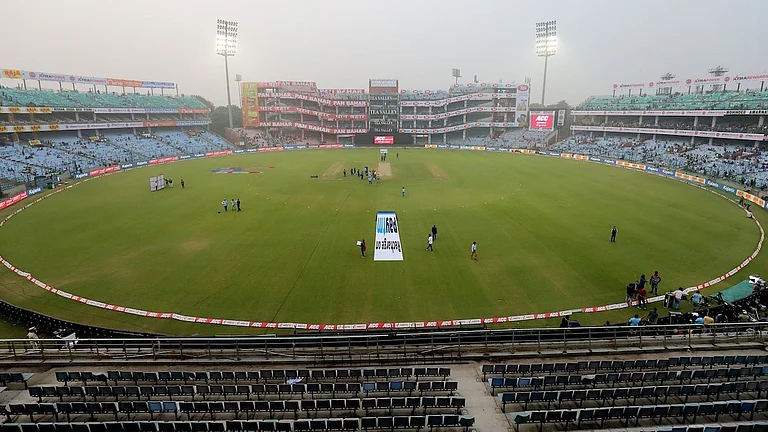‘Leaders in Iran are the biggest oppressors of media freedom in the world,’ said prominent Iranian activist Masih Alinejad on the occasion of World Press Freedom Day. Alinejad, further told the UN General Assembly, that she comes from a country where being a journalist is considered a crime and causes people to be imprisoned.
Whether it’s India, the world or Iran, journalists and press freedom have been under increasing threats from the forces in power. In Iran, the situation on the ground has turned more tumultuous, in the recent past, with Jina Mahsa Amini’s death in police custody, last September, for simply not covering her hair enough. Journalists have been killed and sentenced to death for reporting the death of Amini and highlighting the deplorable human rights of women in the country. But, their voices have been heard, and their bravery has been remembered and honoured on May 3, World Press Freedom Day
The United Nations announced Tuesday night that its premier prize for press freedom has been awarded to three imprisoned Iranian female journalists "for their commitment to truth and accountability."
The winners are Niloufar Hamedi who broke the news that 22-year-old Mahsa Amini’s death while being held by the morality police for wearing her headscarf too loosely, and Elaheh Mohammadi who wrote about her funeral.
The third winner is Narges Mohammadi, who has worked for many years as a journalist and is one of Iran's most prominent activists.
While nearly 100 journalists have been arrested amid the demonstrations, Hamedi and Elaheh Mohammadi's reporting was crucial in the days after Amini's death to spread the word about the anger that followed. Hamedi works for the reformist newspaper Shargh, while Mohammadi works for the reformist newspaper Ham-Mihan.
Narges Mohammadi has been repeatedly detained and imprisoned by authorities, and UNESCO said she is currently serving a 16-year prison sentence in Evin Prison. She's won recognition abroad for her work, including her activism against the death penalty in Iran, which remains one of the world's top executioners.
Amini's death touched off months-long protests in dozens of cities across Iran. The demonstrations posed one of the most serious challenges to the Islamic Republic since the 2009 Green Movement protests drew millions to the streets.
UNESCO Director-General Audrey Azoulay announced the winners at a ceremony in New York, saying: "Now more than ever, it is important to pay tribute to all women journalists who are prevented from doing their jobs and who face threats and attacks on their personal safety."
Zainab Salbi, chair of the international jury of media professionals that chose the winners, said the brave work of the three winners "led to a historical women-led revolution."
"They paid a hefty price for their commitment to report on and convey the truth," Salbi said. "And for that, we are committed to honouring them and ensuring their voices will continue to echo worldwide until they are safe and free."
In late April, Iran's judiciary acknowledged that two reporters who broke news on Amini's death, Hamedi and Elaheh Mohammadi, had been indicted on charges of collaborating with the United States, acting against national security, and creating "propaganda against the system."
While nearly 100 journalists have been arrested amid the demonstrations, Hamedi and Elaheh Mohammadi's reporting was crucial in the days after Amini's death to spread the word about the anger that followed. Hamedi works for the reformist newspaper Shargh, while Mohammadi works for the reformist newspaper Ham-Mihan.
Their detentions have sparked international criticism over the bloody security force crackdown that lasted months after Amini's death. According to UNESCO, both Hamedi and Mohammadi have been in Iran's Evin Prison since September, and Hamedi has been in solitary confinement.
Since the protests began, at least 529 people have been killed in demonstrations, according to Human Rights activists in Iran. Over 19,700 others have been detained by authorities amid a violent crackdown trying to suppress the dissent. Iran for months has not offered any overall casualty figures, while acknowledging tens of thousands had been detained.


























